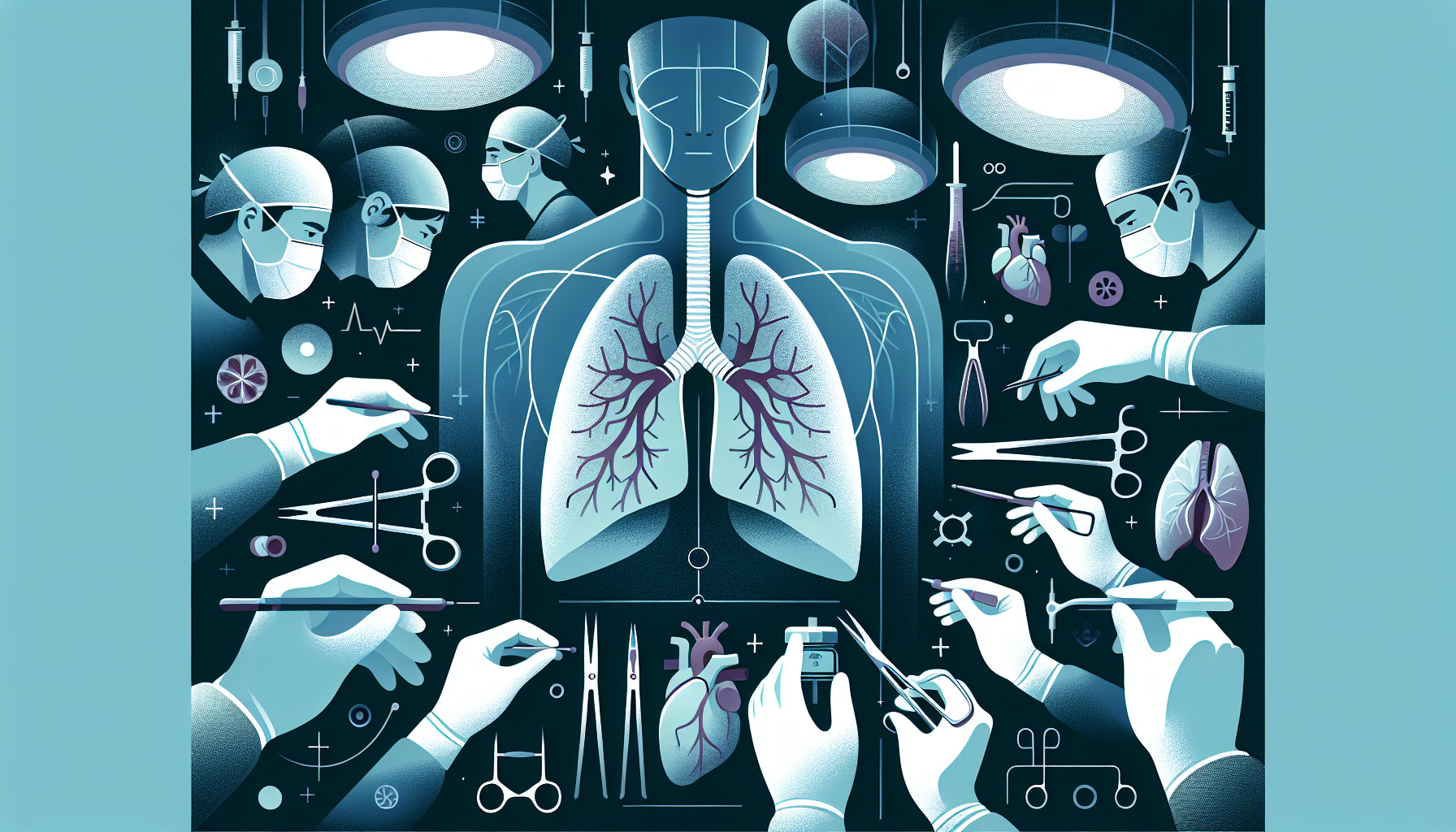Our Summary
This research paper discusses the complications of lung transplants in children, particularly focusing on infections. These infections can occur before, during, or after the transplant from multiple sources such as bacteria, viruses, and fungi. The paper highlights the need for careful management of these infections, especially in children with cystic fibrosis. This involves using strategies like vaccinations and other preventive measures that don’t rely heavily on antibiotics.
The paper also emphasizes the need for more lung donors as demand increases. One solution is to consider donors who may be at a higher risk of carrying blood-borne viruses, as evidence from adult transplants suggests that these transplants can be safe and successful.
Lastly, the paper talks about new ways to fight infections that don’t rely on antibiotics, which could help improve the success rate of lung transplants.
FAQs
- What are some of the complications that can occur in children after a lung transplant?
- What strategies are being used to prevent infections in children who have received a lung transplant?
- Why is there a need for more lung donors and what are some proposed solutions to meet this demand?
Doctor’s Tip
One helpful tip a doctor might tell a patient about lung transplant is to follow a strict medication schedule to prevent rejection of the new lung. This includes taking immunosuppressant medications as prescribed and attending regular follow-up appointments to monitor lung function and overall health. It’s also important to maintain a healthy lifestyle, including regular exercise and a balanced diet, to support overall well-being and optimize the success of the transplant.
Suitable For
Patients who are typically recommended for a lung transplant include those with end-stage lung disease, such as cystic fibrosis, chronic obstructive pulmonary disease (COPD), pulmonary fibrosis, pulmonary hypertension, and other severe lung conditions. These patients may have exhausted all other treatment options and have a significantly reduced quality of life due to their condition. In some cases, patients may also have other comorbidities that further complicate their lung disease and make them suitable candidates for a transplant. Ultimately, the decision to recommend a lung transplant is made by a multidisciplinary team of healthcare professionals who assess the patient’s overall health and likelihood of benefiting from the procedure.
Timeline
Before lung transplant:
- Patient undergoes extensive medical evaluations and testing to determine if they are a suitable candidate for a transplant
- Patient is placed on a waiting list for a donor organ
- Patient may experience worsening symptoms of their lung disease, leading to decreased quality of life and increased reliance on supplemental oxygen or other treatments
- Patient may experience anxiety and stress related to the transplant process
After lung transplant:
- Patient undergoes surgery to receive the new lung(s)
- Patient is closely monitored in the intensive care unit post-surgery for complications such as infection, rejection, or organ failure
- Patient undergoes a period of extensive rehabilitation to regain lung function and strength
- Patient must adhere to a strict medication regimen to prevent rejection of the new lung(s)
- Patient must attend regular follow-up appointments with their healthcare team to monitor their progress and address any complications that may arise
Overall, the process of lung transplant is a complex and challenging journey for patients, requiring careful management and support from healthcare providers and loved ones.
What to Ask Your Doctor
Some questions a patient should ask their doctor about lung transplant may include:
- What are the risks and potential complications of a lung transplant?
- How long is the recovery process and what can I expect during the recovery period?
- What is the success rate of lung transplants in patients with my specific condition?
- How long can I expect the transplanted lung(s) to last?
- What medications will I need to take after the transplant and what are the potential side effects?
- How will the transplant affect my daily life, including work, exercise, and social activities?
- What are the signs of rejection or infection that I should be aware of?
- How often will I need to follow up with my transplant team after the surgery?
- Are there any lifestyle changes I should make before or after the transplant to improve my chances of success?
- Are there any alternative treatments or clinical trials that I should consider before proceeding with a lung transplant?
Reference
Authors: Smibert OC, Paraskeva MA, Westall G, Snell G. Journal: Paediatr Drugs. 2018 Dec;20(6):539-553. doi: 10.1007/s40272-018-0313-1. PMID: 30187362
